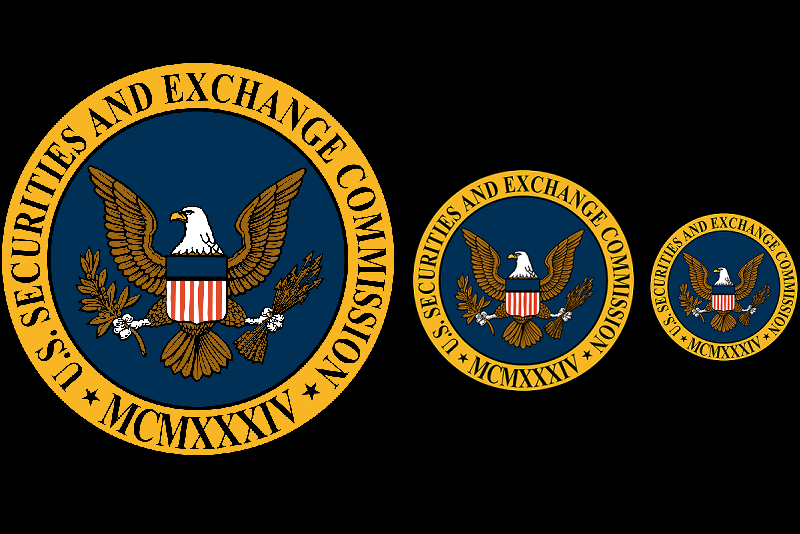BROWSE BY TOPIC
- Bad Brokers
- Compliance Concepts
- Investor Protection
- Investments - Unsuitable
- Investments - Strategies
- Investments - Private
- Features/Scandals
- Companies
- Technology/Internet
- Rules & Regulations
- Crimes
- Investments
- Bad Advisors
- Boiler Rooms
- Hirings/Transitions
- Terminations/Cost Cutting
- Regulators
- Wall Street News
- General News
- Donald Trump & Co.
- Lawsuits/Arbitrations
- Regulatory Sanctions
- Big Banks
- People
TRENDING TAGS
Stories of Interest
- Sarah ten Siethoff is New Associate Director of SEC Investment Management Rulemaking Office
- Catherine Keating Appointed CEO of BNY Mellon Wealth Management
- Credit Suisse to Pay $47Mn to Resolve DOJ Asia Probe
- SEC Chair Clayton Goes 'Hat in Hand' Before Congress on 2019 Budget Request
- SEC's Opening Remarks to the Elder Justice Coordinating Council
- Massachusetts Jury Convicts CA Attorney of Securities Fraud
- Deutsche Bank Says 3 Senior Investment Bankers to Leave Firm
- World’s Biggest Hedge Fund Reportedly ‘Bearish On Financial Assets’
- SEC Fines Constant Contact, Popular Email Marketer, for Overstating Subscriber Numbers
- SocGen Agrees to Pay $1.3 Billion to End Libya, Libor Probes
- Cryptocurrency Exchange Bitfinex Briefly Halts Trading After Cyber Attack
- SEC Names Valerie Szczepanik Senior Advisor for Digital Assets and Innovation
- SEC Modernizes Delivery of Fund Reports, Seeks Public Feedback on Improving Fund Disclosure
- NYSE Says SEC Plan to Limit Exchange Rebates Would Hurt Investors
- Deutsche Bank faces another challenge with Fed stress test
- Former JPMorgan Broker Files racial discrimination suit against company
- $3.3Mn Winning Bid for Lunch with Warren Buffett
- Julie Erhardt is SEC's New Acting Chief Risk Officer
- Chyhe Becker is SEC's New Acting Chief Economist, Acting Director of Economic and Risk Analysis Division
- Getting a Handle on Virtual Currencies - FINRA
ABOUT FINANCIALISH
We seek to provide information, insights and direction that may enable the Financial Community to effectively and efficiently operate in a regulatory risk-free environment by curating content from all over the web.
Stay Informed with the latest fanancialish news.
SUBSCRIBE FOR
NEWSLETTERS & ALERTS
Shrinking SEC: Signs of a Step Back in Financial Regulatory Enforcement
In his 'White Collar Watch' column for the NYTimes, Peter J. Henning addresses how the Trump administration and the Republican Congress are targeting 2 U.S. regulators - the SEC and the CFPB (Consumer Financial Protection Bureau) - and the impact their efforts to shrink or weaken these agencies are likely to have on the financial securities industry.
Here are some of Mr. Hennings' remarks.
When you drive down the highway and see a police cruiser off to the side, the immediate response is to take your foot off the gas and check to see how much over the speed limit you were driving. There is that momentary anguish that the officer might stop you, and a sigh of relief when you check the mirror and see the officer hasn’t moved.
Enforcement often relies on the presence of people with the authority to issue punishments, so cutting back is not so much a matter of changing the law as having fewer cops on the beat.
We may be seeing the beginning of that kind of shift away from enforcement as President Trump’s administration works to roll back how agencies pursue potential violations.
The Securities and Exchange Commission and the Consumer Financial Protection Bureau are the targets of an effort to change how the agencies enforce the law in the financial markets. The major banks are looking to change how data related to possible money laundering and other crimes are collected by shifting more responsibility to the government — which may lower their costs of compliance.
It remains to be seen whether this is a matter of curbing over-regulation or a push to make it easier for companies to test the edges of the law to generate more profits. No one is in favor of crime, and there is always an ebb and flow to the optimal amount of scrutiny, but scaling back enforcement could mean that violations will go undetected until they grow into significant problems.
The S.E.C. has already seen the first step in a changing enforcement landscape as Michael Piwowar, the acting chairman, issued a directive, according to Reuters, saying that only the director of the enforcement division can authorize the commencement of a formal investigation. The reason is to ensure consistency in pursuing investigations — but it also means any requests must go through a centralized location, which could slow the process.
Mr. Piwowar’s move was probably coordinated with Walter J. Clayton, who has been nominated by the president to be the next chairman and will appoint the new enforcement director once he is confirmed.
Mr. Piwowar said in a speech in 2013 that “I question whether the processes currently in place are sufficient for the commission to exercise the appropriate level of oversight of the formal order process.”
Limiting approval to just the enforcement director may signal a shift back to requiring the five commissioners to approve a formal investigation, which means greater oversight of the issues the agency will investigate and perhaps an effort to limit inquiries into certain parts of the markets or corporate practices.
Another area that may see a cutback involves whistle-blowers who provide information to the S.E.C. about possible violations. A memorandum from Representative Jeb Hensarling, Republican of Texas and the chairman of the Financial Services Committee, outlined potential changes to the 2010 Dodd-Frank Act, including eliminating any reward to a person who was a “co-conspirator” in the misconduct.
[Click below link to continue reading .]





